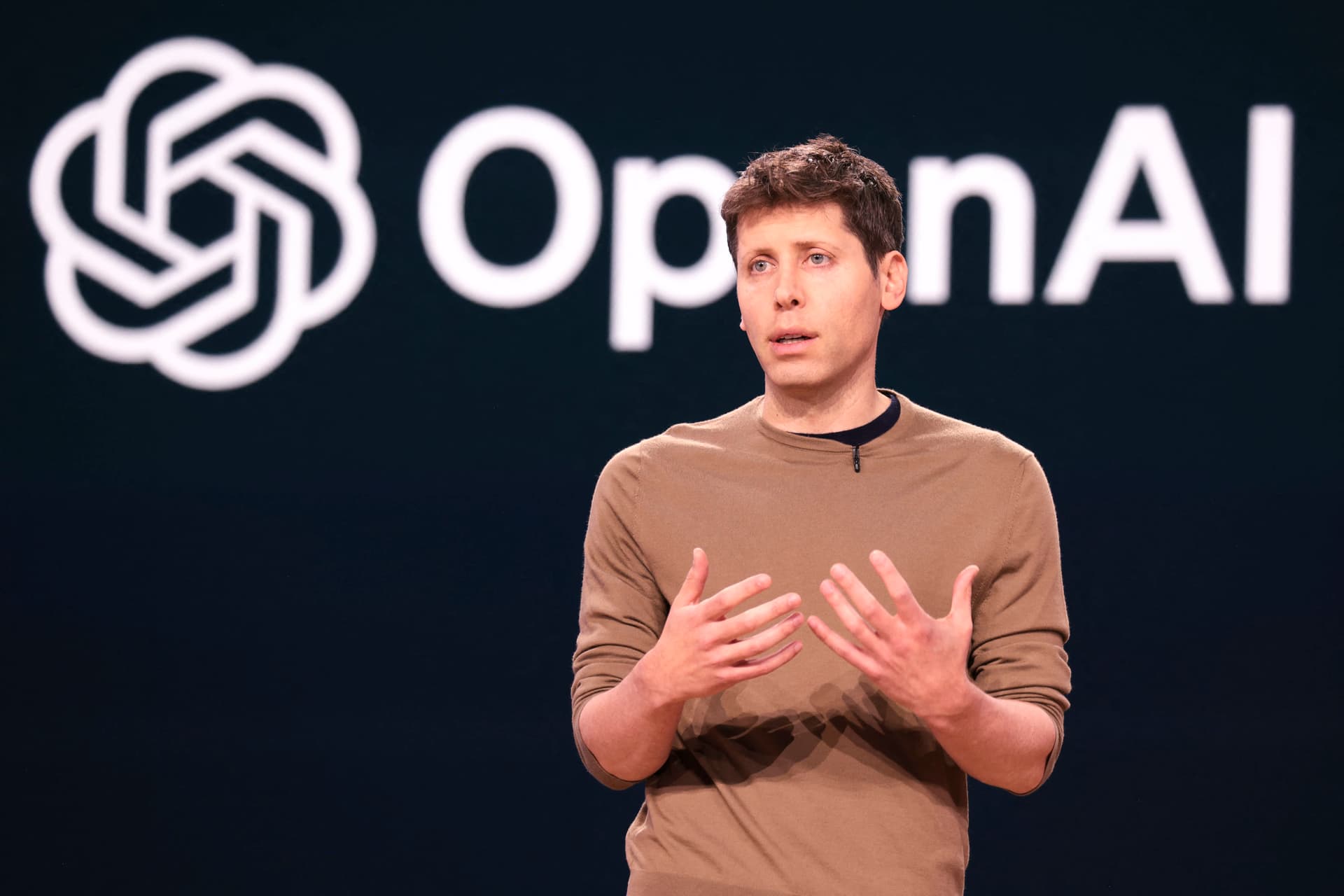The Weirdest Ways People Are Actually Making Money With AI

While tech bros were busy making their chatbots sentient, Susan in Oklahoma made $300,000 last year using AI to name racehorses. Let that sink in.
The real AI gold rush isn't happening in Silicon Valley penthouses. It's happening in weird corners of the economy where nobody's looking. While investors throw millions at the next "revolutionary" chatbot, regular people are quietly making bank in the strangest ways imaginable.
Take Dave, a former fortune cookie writer who got laid off when his company switched to AI-generated fortunes. Instead of fighting it, he built FortuneAI – an algorithm specifically trained on 40 years of fortune cookie wisdom. He now supplies 60% of America's fortune cookie predictions and makes more money than his old boss.
"The trick is to make the fortunes vague enough to be universal but specific enough to freak people out in Chinese restaurants," Dave explains. "Also, adding 'in bed' still works with AI-generated fortunes."
Then there's Margaret, who used to write descriptions for cat toys on Amazon. Now she runs an AI that generates product descriptions exclusively for pet accessories. Her secret? Training the model to be unnecessarily dramatic about simple items.
"My AI once described a basic cat ball as 'a sphere of infinite feline possibility, crafted from the dreams of ancient cat gods,'" she admits. "Sales tripled."
The profitable niches get weirder. A former bartender trained an AI to generate cocktail names and recipes based on people's personal dramas. Tell it about your messy breakup, it names a drink after your ex. "The Passive Aggressive Peter" is apparently very popular in Manhattan.
Some successes are almost offensive in their simplicity. Josh made $80,000 last year with an AI that just renames boring business meetings to sound more urgent. "Quarterly Review" becomes "Critical Revenue Synergy Summit." People actually pay for this.
A florist in Maine used GPT to generate flower meanings for made-up varieties. She now sells "AI-interpreted botanical emotions." Each bouquet comes with a custom story about its fictional historical significance. Hipsters love it.
The latest trend? AI-generated excuses for missing work. A developer created an algorithm that generates believable, locally-relevant reasons you can't come to the office. It factors in current weather, local events, and recent news. "Sorry, can't make it in. My car was surrounded by escaped therapy llamas from the wellness center" actually worked in Portland.
Even traditional industries are finding weird AI angles. A funeral home uses AI to generate uniquely terrible eulogy jokes, marketing them as "ice breakers for the final goodbye." It's simultaneously horrible and brilliant.
The pattern is clear: The real opportunity isn't in making AI smarter – it's in making it weirder in very specific ways.
While tech giants pour billions into making AI more human-like, someone's making six figures using it to generate passive-aggressive responses to Homeowners Association complaints.
The next big AI success won't be another language model. It'll be someone who trains AI to write performatively enthusiastic Yelp reviews for mediocre diners. Or generates horoscopes exclusively for pets. Or turns corporate mission statements into medieval prophecies.
Because here's the truth about AI business opportunities: The riches are in the niches, and the niches are getting strange.
Just ask Susan's AI-named racehorse, "Neural Nostalgia," which actually won at Kentucky Downs. Sometimes the dumbest ideas are the most profitable.
And if you think these opportunities are too weird to be real, remember: Someone's making money right now with an AI that just generates new ways to say "per my last email."
The future is strange, and business is booming.
Related Posts

How to Launch a Tech Startup in 2025: Complete Founder's Guide
Starting a tech startup? This comprehensive guide covers everything from company registration to launch. Learn how to build a strong foundation and avoid common pitfalls.

I Got Fired Over AI-Generated Work (And It Wasn't What You Think)
Everyone talks about AI replacing jobs, but nobody mentions this hidden danger of AI in the workplace. Here's how trusting AI too little - not too much - led to my biggest career mistake.

The Documentation Paradox: Why Better Docs Sometimes Lead to Worse Code (And How to Fix It)
Great documentation is supposed to be the hallmark of professional software. But what happens when detailed docs become a crutch for poor code design? Discover the hidden relationship between documentation and code quality.

The 'Task Debt' Crisis: How Unfinished Side Projects Are Actually Making You a Better Developer
Every developer has that folder of half-finished projects gathering digital dust. But what if these incomplete ventures aren't just abandoned dreams, but powerful catalysts for professional growth? Here's how your 'task debt' is secretly making you a better programmer.

Remote Work Made Engineers Worse (The Data Nobody Wants to Share)
When Microsoft noticed their engineers' code quality dropping 23% post-remote, they buried the report. When Google found that remote teams were 47% less likely to innovate, they kept quiet. Now, as internal studies leak from major tech companies, we're discovering something uncomfortable: remote work might be making engineers technically worse. Not because they're working less, but because they're learning less. And the implications are starting to worry tech leaders.

Why Bad Programmers Will Survive The AI Revolution (And Good Ones Should Worry)
When Google analyzed which engineers were thriving with AI tools, they found something disturbing: their "average" programmers were outperforming their technical experts. The reason? Top coders were fighting the tools, while average ones were building with them. Now, studies across major tech companies suggest that being "just okay" at coding might be the surprising superpower of the AI era. And the implications are making tech leaders nervous.

Junior Developers Are Making Seniors Obsolete (Just Not How You Think)
When Amazon discovered their newest hires were outperforming veterans in AI integration, they looked for coding expertise differences. Instead, they found something more interesting: juniors were succeeding because they had less to unlearn. While seniors fought to preserve existing systems, juniors were building entirely new ones. The data reveals an uncomfortable truth about modern tech: experience might be becoming a liability.

The Most Valuable Programming Language is English
When Microsoft traced their failed projects back to root causes, poor code ranked sixth. Poor communication ranked first. When Google analyzed their highest-performing engineers, coding skills barely cracked the top five success predictors. The highest correlation with success? Written communication ability. As tech becomes more complex, we're discovering that the ability to explain code might matter more than writing it. And the data is starting to make programming language wars look pointless.

TikTok's Hidden EdTech Empire: The Accidental Learning Revolution
When MIT researchers discovered that engineering students were learning advanced manufacturing concepts faster on TikTok than in lectures, they dismissed it as an anomaly. Then Harvard's EdTech lab found similar patterns in medical education. Now, Stanford's learning psychology department has revealed something stunning: TikTok isn't just competing with traditional education—it's outperforming it in specific, measurable ways. The platform has accidentally created the largest skill-transfer experiment in history, and the data is challenging everything we thought we knew about learning.

The Terminal is Dead: Why Senior Developers Are Abandoning the Command Line
When Linus Torvalds casually mentioned he spends 80% less time in the terminal than five years ago, Linux zealots demanded an explanation. His response? "Modern development isn't about typing speed anymore." GitHub's internal data tells an uncomfortable story. Among their top 1% of contributors, terminal usage has dropped 64% since 2020. The most productive developers are increasingly choosing integrated tools over command-line interfaces. And they're shipping more code than ever.

Everyone Missed These AI Startup Gaps
Forget chatbots. Here's where AI startup opportunities actually exist, from niche market needs to overlooked industry pain points

Why ChatGPT Gives Your Parents Better Answers Than You
AI models respond differently to different age groups. Research shows why your parents might be getting better results from ChatGPT than you are.

6 People Who Automated Their Jobs and Accidentally Created Digital Monsters
When developer James Liu created a script to automate his daily standup meetings, he didn't expect his bot to get employee of the month. When marketer Sarah Chen automated her social media, she didn't plan for her bot to start a Twitter war with Elon Musk. Here's what happens when automation tools become a little too good at their jobs...

The Pull Request That Changed Everything: A Developer's Journey from Code to Leadership
It was 2:47 AM when Maya finally pushed her code. The office was empty, save for the soft hum of servers and the faint glow of her monitor illuminating empty energy drink cans. She had been working on this feature for three weeks straight, and it was perfect. Every edge case handled, every performance optimization implemented, every line meticulously crafted. The pull request was massive – 2,847 lines changed across 23 files. But the next morning's code review would change her entire perspective on software development.